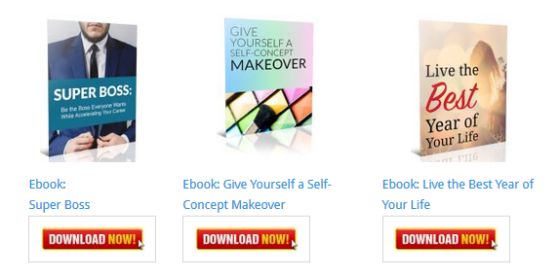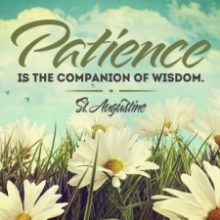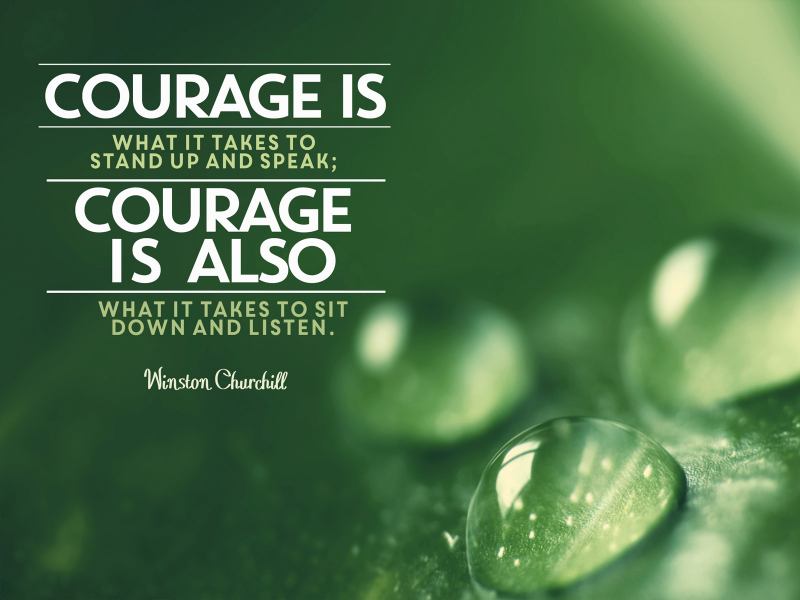Stop Negative Self-Talk Before It Utters Another Word
Stop Negative Self-Talk Before It Utters Another Word
As humans, we’re sometimes very hard on ourselves. Whether we’re conscious of it or not, our beliefs can sometimes be very damaging to our self-esteem. Unfortunately, these negative talking points in our head sometimes keep us stuck in a rut.
A great psychologist, Albert Ellis, had many tokens of wisdom to pass around. One of his ideas centralized around these negative thoughts, which he often referred to as irrational beliefs.

Personal Development Blog Ebooks or
This Ebook: Give Yourself a Self-Concept Makeover
Discover how you can stop this vicious circle and turn your self-talk into words that support and encourage you, instead.
Pay Attention to Triggers
The first step to stopping negative self-talk is figuring out what is triggering these negative beliefs in the first place.
Albert Ellis called these so-called triggers “activating events.” These can be everyday occurrences that happen to us or around us. Anything from having your boss or supervisor yell at you and take away your project to experiencing a run-in collision with a deer on a country road can be an activating event.
Are you in conflict with another? Did something not go your way?
Further, triggers can also be incredibly personal to you and unique to your life. These are sometimes referred to as “red flags.” Red flags are issues that pertain to you alone, such as your weight, family and close relationships, integrity, and anything else that you deem sacred.
When these issues get raised, they immediately set off an alarm within you.
Identify Irrational Beliefs
These irrational beliefs are the real culprits behind why we get upset or angry at the triggers we’ve just experienced, according to Albert Ellis. It’s not the trigger itself, but the beliefs that cause the negative self-talk.
Ellis claimed that these irrational beliefs are responsible for our emotional states, also known as the consequences of our beliefs. In this way, by identifying and then changing these beliefs, we can experience fewer emotional consequences.
For example, let’s look at this process:
- You just learned that you got turned down for a promotion at work.
- Getting turned down for the promotion is the activating event or trigger.
- The underlying thoughts or irrational beliefs you might be having include, “I’m never going to advance my career,” “My boss hates me,” or even “My boss is never fair to me.”
- These beliefs or thoughts can lead to emotional consequences of sadness and depression.

AD by Inspirational Media
Dispute Irrational Beliefs
The idea behind identifying these negative, irrational beliefs is so you can do something to change them. You can change them by challenging these beliefs. This is a process of examining the truth and reality and seeing that it is different from your belief.
In the prior example of getting turned down for a promotion, a series of questions can be asked to help you sort through reality from these irrational beliefs. You want to challenge yourself by asking questions that are almost the opposite of your identified beliefs.
Some of these challenge questions may be:
- What is the truth in this situation?
- Do I have evidence to support that my current beliefs are true?
- In the example above: Are there times when my boss has been fair?
- Is it true that I’ll never advance in my career, or is this just a minor setback?
These questions can help you identify the truth from what you may erroneously believe or negatively think about a situation.
If you can identify the truth, this can lead you to think differently and avoid suffering the emotional consequences of the trigger in the first place.
Follow this process whenever you notice thoughts that are unkind to you. Change your beliefs and you’ll find your self-talk becoming words of encouragement, instead.
Featured Personal Development Ebook:
Contentment is the place where we don’t need anything. We’re completely satisfied as we are, as our life is.
Think of how many things you do each day in an effort to feel more content. You say or do things to impress others, you say or do things to avoid being ridiculed by others, you work at a job you don’t like so you can make more money to buy things you want or to impress others and, you exercise and diet beyond what is reasonable in order to look a certain way. The list is really endless. We spend a lot of our day trying to feel more content. However, these things aren’t the path to radical contentment.
In this guide, discover how compassion will free you, heal you, and will lead you to radical contentment.
You will receive the file/s below (in one ZIP file) for your personal use:
MAIN EBOOK:
- Self-Acceptance (30-page PDF)
WORKSHEET:
- Self-Acceptance (6-page PDF)
BONUSES:
- 15 Ways to Have Your Best Year Ever (67 Slide Decks)
- 15 Ways to Have Your Best Year Ever (3 Slide Decks)
- Grayson the Go Getter Gopher Fable (4-page PDF)
- Top 5 Causes Behind Overeating and How to Avoid Them (3-page PDF)
View more gifts at PersonalDevelopment.






